- Home
- J. R. R. Tolkien
Beowulf: A Translation and Commentary, together with Sellic Spell Page 2
Beowulf: A Translation and Commentary, together with Sellic Spell Read online
Page 2
The text of C as typed was identical with (b) except that the words ‘with grey’ were omitted, obviously a mere oversight (Old English æscholt ufan grǽg), and I typed ‘with greatness’ in error for ‘in greatness’.
(c) The text of C as emended (the further changes are underlined)
Weary of the sea they set their tall shields, bucklers wondrous hard, against the wall of the house, and sat then on the bench. Corslets rang, war-harness of men. Their spears stood piled together, seamen’s gear, ash-hafted, grey-tipped with steel. Well furnished with weapons was the iron-mailed company. There then a knight in proud array asked those men of battle concerning their lineage: ‘Whence bear ye your plated shields, your grey shirts of mail, your masked helms and throng of warlike shafts? I am Hrothgar’s herald and servant. Never have I seen so many men of outland folk more proud of bearing! I deem that in pride, not in the ways of banished men, nay, with greatness of heart you have come seeking Hrothgar!’ To him then, strong and bold, the proud prince of the Windloving folk replied, words he spake in answer, stern beneath his helm: ‘We are companions of Hygelac’s table; Beowulf is my name.’
It will be seen that among these revisions ‘grey-tipped with steel’, ‘in pride’ for ‘with proud purpose’, and ‘table’ for ‘board’ return the text to B(i) before emendation. The only differences in this text from the passage as printed in this book occur in line 275: ‘in greatness’ restores the correct reading (see above), and ‘ye have come’ is my correction of my father’s obvious slip ‘you have come’ (cf. 315–20).
There seem to be two superficially simple explanations of the relationship between the two very different texts B(i) and B(ii) that are conjoined so neatly, with the first words of a sentence on the last page of the typescript and the rest of it on the first page of the manuscript. Thus it could be supposed that the typescript B(i) was immediately continued in the manuscript B(ii) for some external cause or other (e.g. the typewriter had to be repaired); or else that the manuscript was the primary text and that it was in the course of being overtaken by the typescript when the typewriter was for whatever reason withdrawn. On this supposition the putative manuscript up to the point where it now begins was lost or destroyed.
The latter seems much the less probable of the two; but I doubt that the first explanation is correct either. The manner of composition of the two texts is very different. The typescript B(i), before heavy subsequent correction, was a finished text (even if regarded at the time of its making as provisional), whereas the manuscript B(ii) gives a strong impression of being a work still in progress, with corrections made in the act of writing, and marginal notes which may leave one in doubt whether the reading is intended as a replacement or a possibility to be considered.
On the whole I am inclined to think that the relationship cannot be unravelled on the basis of the material that has survived, but in any case it is clear that it was the unhappy state of B(i) and the abundant corrections of both texts that explains why – many years after he had said that his prose translation of Beowulf was completed – my father invited me to make a new typescript text of the whole.
Abandoning his fragmentary work on a fully alliterative translation of Beowulf, imitating the regularities of the old poetry, my father, as it seems to me, determined to make a translation as close as he could to the exact meaning in detail of the Old English poem, far closer than could ever be attained by translation into ‘alliterative verse’, but nonetheless with some suggestion of the rhythm of the original.
Of Old English verse he wrote: ‘In essence it is made by taking the half-dozen commonest and most compact phrase-patterns of the ordinary language that have two main elements or stresses. Two of these [phrase-patterns], usually different, are balanced against one another to make a full line.’ I have found nowhere among his papers any reference to the rhythmical aspect of his prose translation of Beowulf, nor indeed to any other aspect, but it seems to me that he designedly wrote quite largely in rhythms founded on ‘common and compact prose-patterns of ordinary language’, with no trace of alliteration, and without the prescription of specific patterns.
upon the morrow they lay upon the shore in the flotsam of the waves, wounded with sword-thrusts, by blades done to death, so that never thereafter might they about the steep straits molest the passage of seafaring men. (459–63)
In care and sorrow he sees in his son’s dwelling the hall of feasting, the resting places swept by the wind robbed of laughter – the riders sleep, mighty men gone down into the dark; there is no sound of harp, no mirth in those courts, such as once there were. Then he goes back unto his couch, alone for the one beloved he sings a lay of sorrow: all too wide and void did seem to him those fields and dwelling places. (2064–70)
It is interesting to compare his translation into alliterative verse of the description in Beowulf, lines 210–24, of the voyage of Beowulf and his companions to Denmark (given in the section ‘On Metre’ in his Prefatory Remarks to the translation by J.R. Clark Hall, revised by C.L. Wrenn, 1940), with the prose translation in this book, lines 171–82.
Time passed away. On the tide floated
under bank their boat. In her bows mounted
brave men blithely. Breakers turning
spurned the shingle. Splendid armour
they bore aboard, in her bosom piling
well-forged weapons, then away thrust her
to voyage gladly valiant-timbered.
She went then over wave-tops, wind pursued her,
fleet, foam-throated, like a flying bird;
and her curving prow on its course waded,
till in due season on the day after
those seafarers saw before them
shore-cliffs shimmering and sheer mountains,
wide capes by the waves; to water’s end
the ship had journeyed.
Time passed on. Afloat upon the waves was the boat beneath the cliffs. Eagerly the warriors mounted the prow, and the streaming seas swirled upon the sand. Men-at arms bore to the bosom of the ship their bright harness, their cunning gear of war; they then, men on a glad voyage, thrust her forth with her well-joined timbers. Over the waves of the deep she went sped by the wind, sailing with foam at throat most like unto a bird, until in due hour upon the second day her curving beak had made such way that those sailors saw the land, the cliffs beside the ocean gleaming, and sheer headlands and capes thrust far to sea. Then for that sailing ship the journey was at an end.
This rhythm, so to call it, can be perceived throughout. It is a quality of the prose, by no means inviting analysis, but sufficiently pervasive to give a marked and characteristic tone to the whole work. And this rhythmic character will be found to account for such features of the diction as the ending -ed being in some cases written -éd, to provide an extra syllable, as ‘renowned’ 753, 833, but ‘renownéd’ 649, 704, or ‘prized’ 1712, but ‘prizéd’ 1721, and similarly often elsewhere; or the use of ‘unto’ for ‘to’ in such cases as ‘a thousand knights will I bring to thee, mighty men unto thy aid’ 1534–5. Verbal endings -s and archaic -eth can be seen varying for rhythmical reasons, very notably in the passage 1452–76; inversion of word-order can often be similarly explained, and choice of word scarcely noticeable (as ‘helmet’ for the more usual ‘helm’ 839). Many of the corrections to the typescript ‘C’ were of this nature.
From what I have said earlier it can be seen that the text of the translation given in this book has been based throughout on the latest readings of the author, represented by the typescript C as corrected by him; and as I have already mentioned many features are amplified in the section Notes on the text following the translation (pp. 107 ff.), which in turn is linked to discussions in the commentary.
My guiding principle has been to introduce no readings that are not actually present in one of the texts B(i), B(ii), and C, except in one or two obvious cases that are recorded in the Notes on the text of the translation.
In the matter o
f proper names my father was inconsistent and sometimes found it difficult to decide between several possibilities – a notable example is Weder-Geatas, on which see the note to lines 182–3 in the Notes on the text. On the spelling of Old English names see the end of the introductory note to the commentary, p. 135.
I should mention here that I have not altered any archaic usages, letting for instance the once common form corse stand, for modern corpse.
BEOWULF
Lo! the glory of the kings of the people of the Spear-Danes in
days of old we have heard tell, how those princes did deeds
of valour. Oft Scyld Scefing robbed the hosts of foemen,
many peoples, of the seats where they drank their mead, laid
5 fear upon men, he who first was found forlorn; comfort for
that he lived to know, mighty grew under heaven, throve in
honour, until all that dwelt nigh about, over the sea where the
whale rides, must hearken to him and yield him tribute – a
good king was he!
10 To him was an heir afterwards born, a young child in
his courts whom God sent for the comfort of the people:
perceiving the dire need which they long while endured
aforetime being without a prince. To him therefore the Lord
of Life who rules in glory granted honour among men: Beow
15 was renowned – far and wide his glory sprang – the heir
of Scyld in Scedeland. Thus doth a young man bring it to
pass with good deed and gallant gifts, while he dwells in his
father’s bosom, that after in his age there cleave to him loyal
knights of his table, and the people stand by him when war
20 comes. By worthy deeds in every folk is a man ennobled.
Then at his allotted hour Scyld the valiant passed into the
keeping of the Lord; and to the flowing sea his dear comrades
bore him, even as he himself had bidden them, while yet,
their prince, he ruled the Scyldings with his words: beloved
25 lord of the land, long was he master. There at the haven stood
with ringéd prow, ice-hung, eager to be gone, the prince’s
bark; they laid then their beloved king, giver of rings, in the
bosom of the ship, in glory by the mast. There were many
precious things and treasures brought from regions far away;
30 nor have I heard tell that men ever in more seemly wise
arrayed a boat with weapons of war and harness of battle; on
his lap lay treasures heaped that now must go with him far
into the dominion of the sea. With lesser gifts no whit did
they adorn him, with treasures of that people, than did those
35 that in the beginning sent him forth alone over the waves, a
little child. Moreover, high above his head they set a golden
standard and gave him to Ocean, let the sea bear him. Sad was
their heart and mourning in their soul. None can report with
truth, nor lords in their halls, nor mighty men beneath the
40 sky, who received that load.
Then in the strongholds long was Beow of the Scyldings,
beloved king of men, renowned among peoples - elsewhere
had the prince his father departed from his home - until
thereafter he begat Healfdene the high, who held the lordship
45 while he lived, aged and fierce in war, over the fair
Scyldings. To him were children four born in the world, in
order named: captains of the hosts, Heorogar, and Hrothgar,
and Halga the good; and [a daughter] I have heard that was
Onela’s queen, dear consort of the warrior Scylfing.
50 Thereafter was fortune in war vouchsafed to Hrothgar,
and glory in battle, that the vassals of his own kindred hearkened
willingly unto him and the numbers of his young warriors
grew to a mighty company of men. Then it came into
his heart that he would command men to fashion a hall and a
55 mansion, a mightier house for their mead-drinking than the
children of men had ever known, and there-within would
he apportion all things to young and old such as God had
granted him, save the people’s land and the lives of men.
Then have I heard that far and wide to many a kindred
60 on this middle-earth was that work proclaimed, the adorning
of that dwelling of men. In a while, swiftly among men, it
came to pass for him that it was all made ready, the greatest
of houses and of halls. For it he devised the name of Heorot,
even he whose word far and wide was law. His vow he belied
65 not: the rings he dealt and treasure at the feast. The hall towered
high with hornéd gables wide, awaiting the warring
billows of destroying fire: the time was not far off that between
father and daughter’s spouse murderous hate in memory of a
deadly feud should awake again.
70 Then the fierce spirit that abode in darkness grievously
endured a time of torment, in that day after day he heard the
din of revelry echoing in the hall. There was the sound of
harp and the clear singing of the minstrel; there spake he that
had knowledge to unfold from far-off days the first beginning
75 of men, telling how the Almighty wrought the earth,
a vale of bright loveliness that the waters encircle; how triumphant
He set the radiance of the sun and moon as a light
for the dwellers in the lands, and adorned the regions of the
world with boughs and with leaves, life too he devised for
80 every kind that moves and lives.
Even thus did the men of that company live in mirth and
happiness, until one began to work deeds of wrong, a fiend
of hell. Grendel was that grim creature called, the ill-famed
haunter of the marches of the land, who kept the moors, the
85 fastness of the fens, and, unhappy one, inhabited long while
the troll-kind’s home; for the Maker had proscribed him with
the race of Cain. That bloodshed, for that Cain slew Abel, the
Eternal Lord avenged: no joy had he of that violent deed, but
God drove him for that crime far from mankind. Of him all
90 evil broods were born, ogres and goblins and haunting shapes
of hell, and the giants too, that long time warred with God –
for that he gave them their reward.
Then went Grendel forth when night was come to spy
on that lofty house, to see how the Ring-Danes after the ale-
95 aledrinking had ordered their abode in it; and he found therein
a lordly company after their feasting sleeping, sorrow they
knew not, the unhappy fate of men. That accurséd thing, ravenous
and grim, swift was ready; thirty knights he seized upon
their couch. Thence back he got him gloating over his prey,
100 faring homeward with his glut of murder to seek his lairs.
Thereafter at dawn with the first light of day was Grendel’s
strength in battle made plain to men; then was weeping after
feasting upraised, a mighty cry at morn. The glorious king,
their prince proven of old, joyless sat: his stout and valiant
105 heart suffered and endured sorrow for his knights, when men
had scanned the footprints of that foe, that demon cursed;
too bitter was that strife, too dire and weary to endure! Nor
was it longer space than but one night ere he wrought again
cruel murders more, and grieved not for them, his deeds of
110 enmity and wrong – too deep was he therein. Thereafter not
far to seek was the man who elsewhere more remote sought
him his couch and a bed among the lesser chambers, since
now was manifested and declared thus truly to him with
token plain the hatred of that hall-keeper; thereafter he who
115 escaped the foe kept him more distant and more safe.
Even thus did one lord it and against right make war, alone
against them all, until empty stood that best of houses. Long
was the while; twelve winters’ space the Scyldings’ dear lord
endured anguish and every woe and sorrow deep. So it was
120 made known to men and revealed to the children of mankind
sadly in songs that Grendel strove a while with Hrothgar,
wrought hate and malice, evil deeds and enmity, for many
a year, a strife unceasing; truce would he not have with any
man of the Danish host, nor would withhold his deadly
125 cruelty, nor accept terms of payment; and there no cause had any
of the counsellors to look for golden recompense from the
slayer’s hands; nay, the fierce killer pursued them still, both
knights and young, a dark shadow of death, lurking, lying in
wait, in long night keeping the misty moors: men know not
130 whither sorcerers of hell in their wanderings roam.
Thus many a deed of evil that foe of men stalking
dreadfully alone did often work, many a grievous outrage; in
Heorot’s hall bright with gems in the dark nights he dwelt.
(Never might he approach the precious Throne of grace in
135 the presence of God, nor did he know His will). That was
great torment to the Scyldings’ lord, anguish of heart. Many
a mighty one sat oft communing, counsel they took what it
were best for stouthearted men to do against these dire terrors.
At times they vowed sacrifices to idols in their heathen

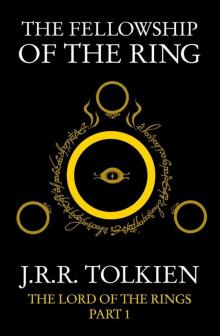 The Fellowship of the Ring
The Fellowship of the Ring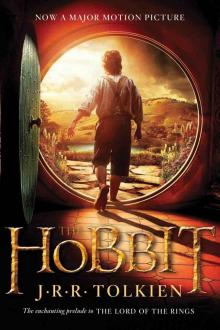 The Hobbit
The Hobbit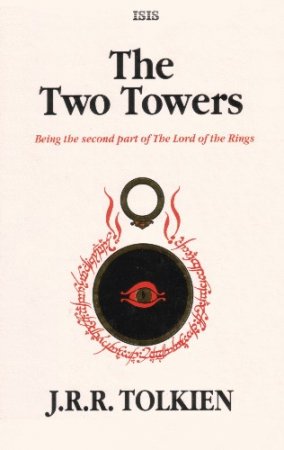 The Two Towers
The Two Towers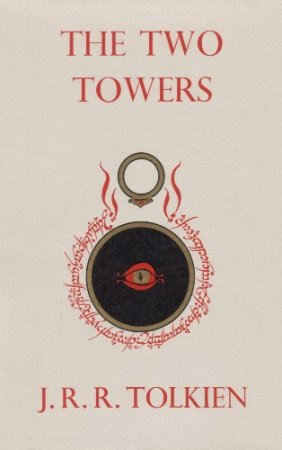 The Return of the King
The Return of the King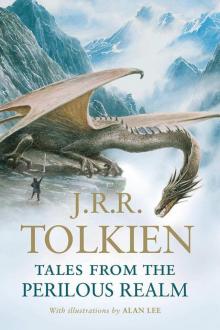 Tales From the Perilous Realm
Tales From the Perilous Realm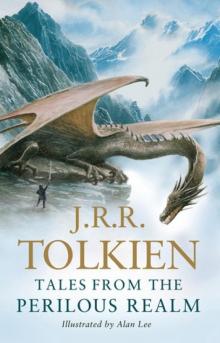 Leaf by Niggle
Leaf by Niggle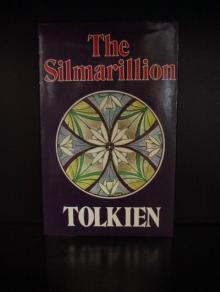 The Silmarillon
The Silmarillon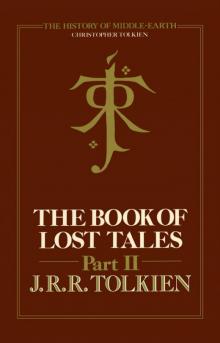 The Book of Lost Tales, Part Two
The Book of Lost Tales, Part Two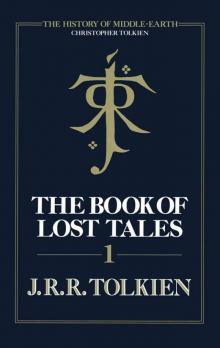 The Book of Lost Tales, Part One
The Book of Lost Tales, Part One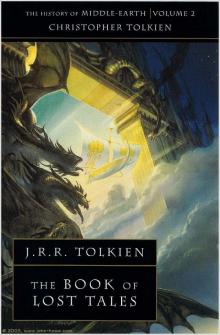 The Book of Lost Tales 2
The Book of Lost Tales 2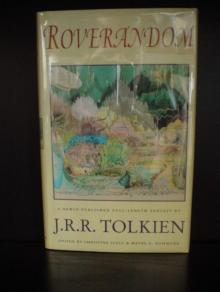 Roverandom
Roverandom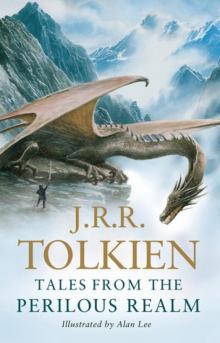 Smith of Wootton Major
Smith of Wootton Major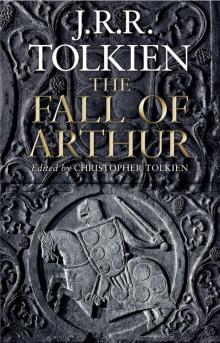 The Fall of Arthur
The Fall of Arthur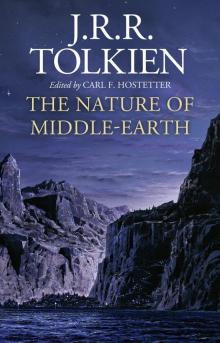 The Nature of Middle-earth
The Nature of Middle-earth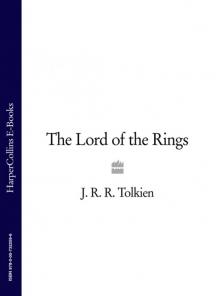 The Lord of the Rings: The Fellowship of the Ring, The Two Towers, The Return of the King
The Lord of the Rings: The Fellowship of the Ring, The Two Towers, The Return of the King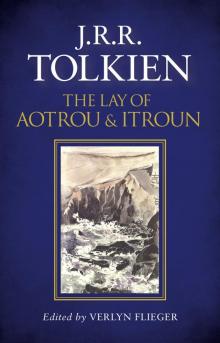 The Lay of Aotrou and Itroun
The Lay of Aotrou and Itroun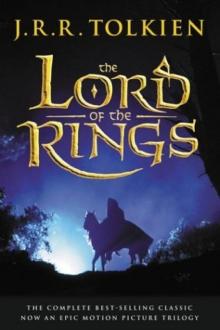 lord_rings.qxd
lord_rings.qxd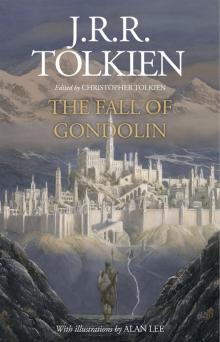 The Fall of Gondolin
The Fall of Gondolin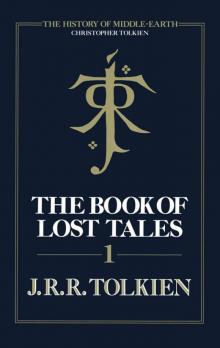 The Book of Lost Tales, Part 1
The Book of Lost Tales, Part 1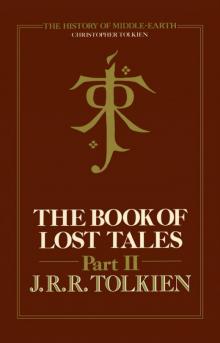 The Book of Lost Tales, Part 2
The Book of Lost Tales, Part 2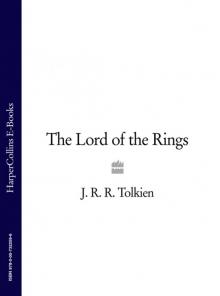 The Lord of the Rings
The Lord of the Rings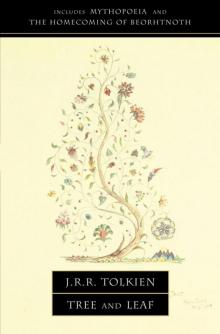 Tree and Leaf
Tree and Leaf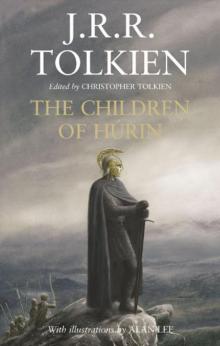 The Children of Húrin
The Children of Húrin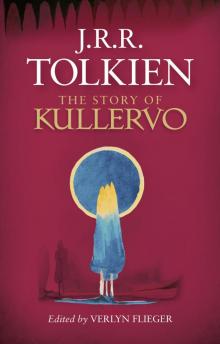 The Story of Kullervo
The Story of Kullervo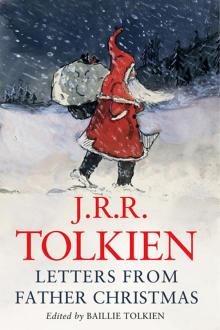 Letters From Father Christmas
Letters From Father Christmas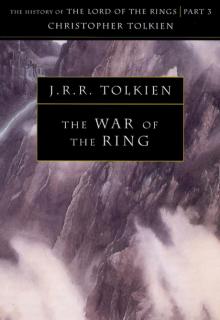 The History of Middle Earth: Volume 8 - The War of the Ring
The History of Middle Earth: Volume 8 - The War of the Ring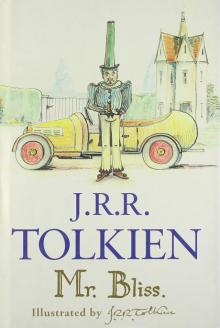 Mr. Bliss
Mr. Bliss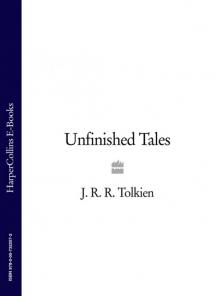 Unfinished Tales
Unfinished Tales The Adventures of Tom Bombadil
The Adventures of Tom Bombadil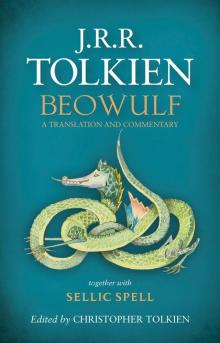 Beowulf: A Translation and Commentary, together with Sellic Spell
Beowulf: A Translation and Commentary, together with Sellic Spell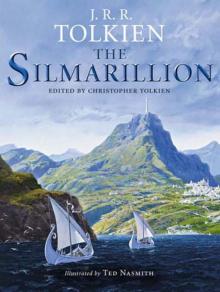 The Silmarillion
The Silmarillion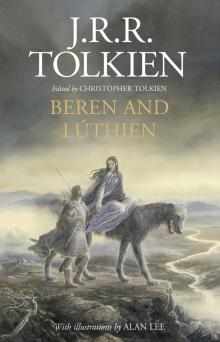 Beren and Lúthien
Beren and Lúthien